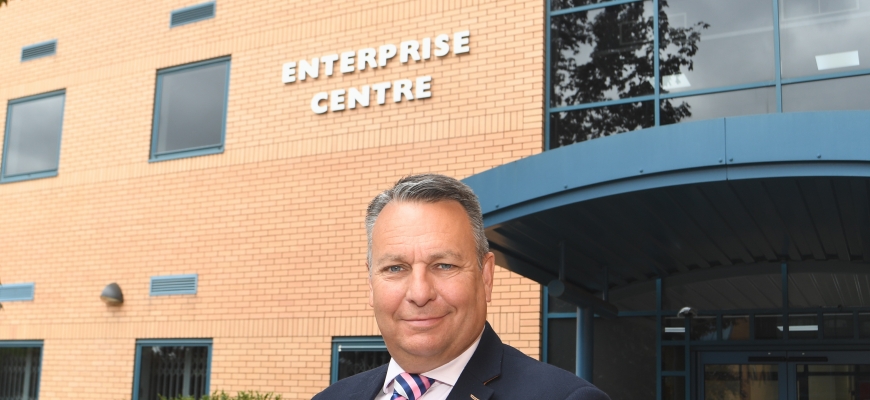
Coventry and Warwickshire is at the heart of ground-breaking innovations that will radically change vehicle technology across the world for generations to come.
Automotive and Future Mobility is under the spotlight in this month’s SmartRegion report which contains findings from research and engagements contributed to by Coventry and Warwickshire Growth Hub, Warwickshire County Council, Coventry City Council, and other business support organisations.
Coventry and Warwickshire currently has the highest concentration of transport technology, design, engineering, and manufacturing centres in the UK, with major Original Equipment Manufacturers including Aston Martin Lagonda, BMW, Geely London EV Company, Jaguar Land Rover, and Rolls Royce Aerospace, and has a growing supply chain for net-zero carbon vehicle technology.
Examples of recent investments include Lotus Engineering who have established the Lotus LATC (Advanced Technology Centre) at the University of Warwick Innovation Campus, Stratford-upon-Avon, to develop Electric Vehicle platforms; and Hyperbat in Coventry recently sealed a multi-million-pound contract to supply batteries to Lotus for its new all-electric Evija, the world’s most powerful production car. Polestar and REE Auto are developing new vehicles and products at MIRA Technology Park in Nuneaton and REE Auto has added a commercial vehicle EV sub-assembly plant in Coventry.
Elsewhere, rail leasing company Porterbrook has taken a 15-year lease on the 135-acre Long Marston Rail Innovation Centre; and the £130m 200,000 sqm UK Battery Industrialisation Centre (UKBIC) officially opened in 2021 on the edge of Coventry, is a world first battery technology scale-up facility. Close by, the West Midlands Gigafactory has outline planning permission in Coventry for a facility which could accommodate up to 60 GWh of production capability, enough to power 600,000 electric vehicles per year.
The recently launched Electric Revolution Skills Hub, led by Coventry University and other national higher education partners, is an important new initiative and online platform to drive electrification skills across future mobility and engineering, by bringing vacancies and courses together in one place.
Craig Humphrey, Chief Executive Officer at Coventry and Warwickshire Growth Hub, said this all underlines the importance of Coventry and Warwickshire in the UK’s Automotive and Future Mobility’s future success.
He said: “Coventry and Warwickshire is home to businesses driving forward global technologies and ground-breaking innovations, including EV battery and energy storage, the deployment of hydrogen in transport, and connected and autonomous technologies which, in turn, is driving forward demand for office and industrial premises.
“This is why it is crucial to secure further investment to safeguard and enhance the sector’s future and ensure our region is able to realise expanding global market opportunities.
“Our region benefits from national centres of R&D including High Value Manufacturing Catapult Centres at the Manufacturing Technology Centre (MTC) and WMG at the University of Warwick, vehicle test and development at MIRA Technology Park, the National Transport Design Centre at Coventry University, Long Marston Rail Innovation Centre, and the UK Battery Industrialisation Centre.
“Coventry and Warwickshire has always been renowned for our innovation and our forward-thinking approach is evident in many initiatives that are in the pipeline.
“A £150 million project to create the UK’s first all-electric bus city in Coventry by 2025 is well underway, the Very Light Rail system is currently in the research and development phase, and ‘Air-One’ opened in Coventry last year which is a world-first demonstration of a fully-operational hub for electric vertical take-off and landing vehicles.
“All of this is very exciting and is becoming reality with our local colleges and two universities who are at the forefront of developing the workforce of the future with electrification skills.”
